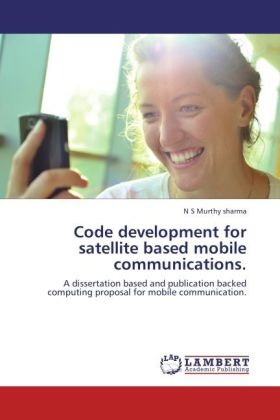Read more
This work is evolved from approved M.Tech dissertation. As communication satellites are the basis for several wireless communications, this computations and code proposed is classified under communication satellites.In mobile telephony, third-generation protocols support much higher data rates, measured in MBPS, intended for applications other than voice. 3G networks are currently in Inida. 3G will support bandwidth-hungry applications such as full-motion video, video-conferencing and full Internet access.The objective of 3rd generation of wireless communication is to provide fairly high speed wireless communication to support multi media ,data and video in addition to voice. However, by the time of readers reading this, advanced versions are expected in practice. This is since evolution is a continuous process. State of art explanation at the time of practicing the proposed work and the time of reading this report will be with a gap of years Multi-User Detection (MUD) is a technique that can be employed to improve capacity and coverage in a Code division Multiple Access (CDMA) system.The necessary code is developed and embedded in this work.This is validated by two publications.

